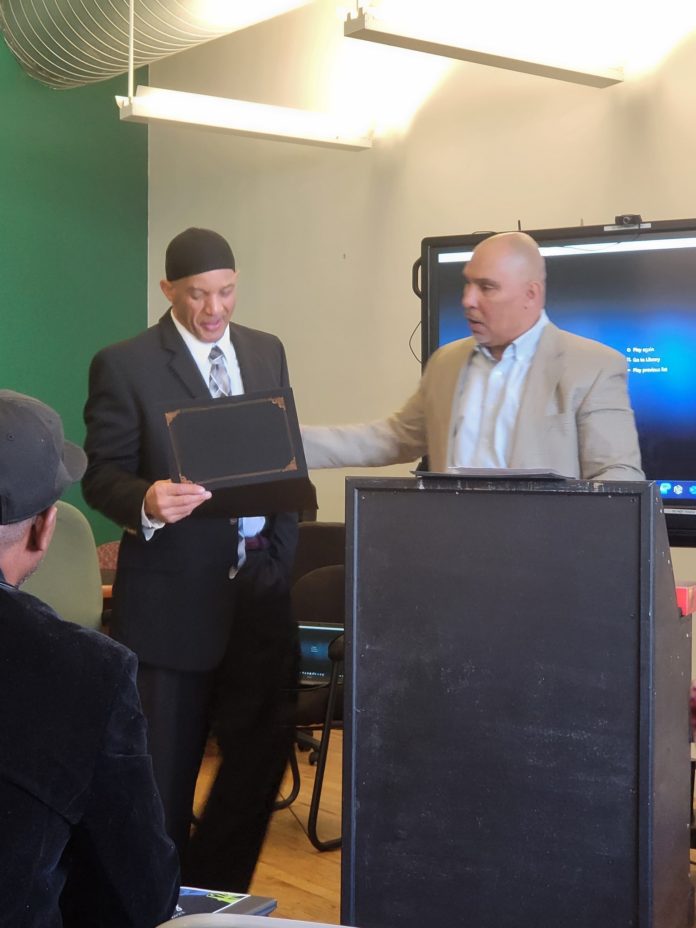Newark, NJ — Essex County, New Jersey Youth Advocate Programs (YAP), Inc. hosted a special graduation ceremony this month for 30 participants of a pilot program that supports individuals leaving prison when their sentences “max out.” The program is a partnership between YAP and the New Jersey Department of Corrections (NJDOC), which connects individuals to the program up to 180 days before their release date.
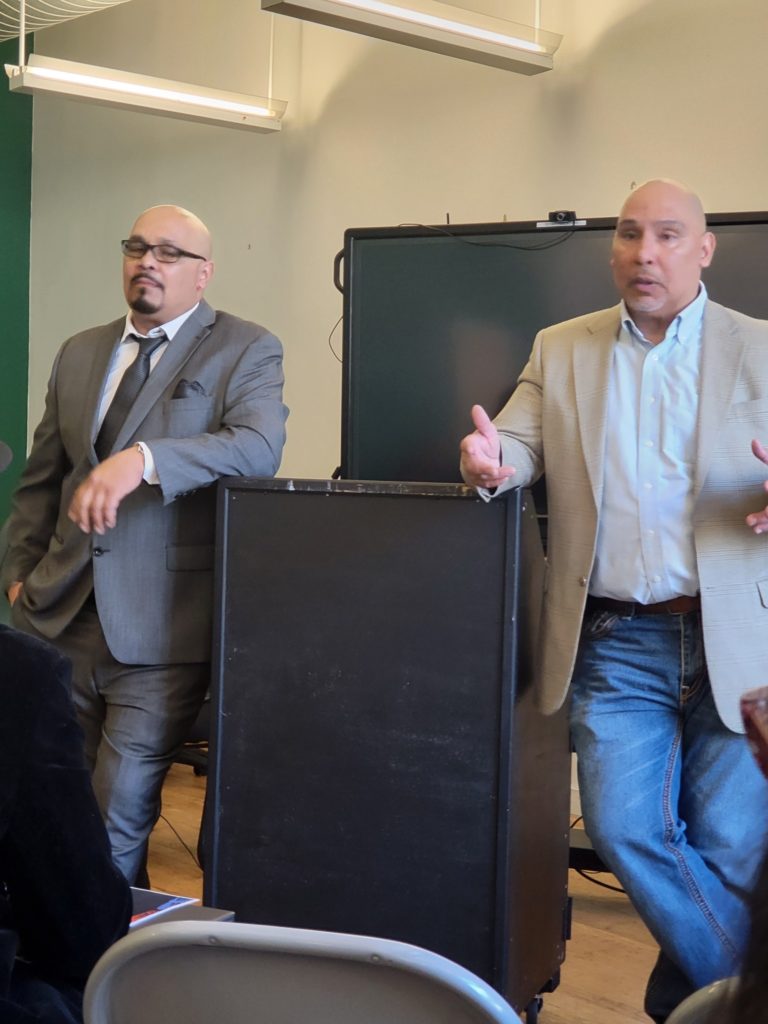
“When you max out, you return to society often after many years in prison, with no supervision, but also with no support,” said Program Director Edwin “Chino” Ortiz who oversees the pilot, working alongside his brother, Program Coordinator Carmelo “Melo” Ortiz. The Ortiz brothers maxed out of prison in 2016, each after serving 30 years. When Edwin was 19 and Carmelo was 20, they were convicted on charges related to the death of man during a robbery.
Incarcerated people often choose to max out rather than taking a chance on a parole hearing where additional time might be added to their sentences, the Ortiz brothers said. They added that 50-75 percent of people leaving prison in New Jersey are technically maxing out.
“I knew Chino and Melo from prison and worked with them before I got out,” said 51-year-old Maurice Romero. “When I got out, they brought me to the office, gave me a huge backpack with clothes, gift cards, everything I needed. They took me to the bus station to get bus cards, helped me get reduced rent for the apartment, and gave me suits for job interviews.”
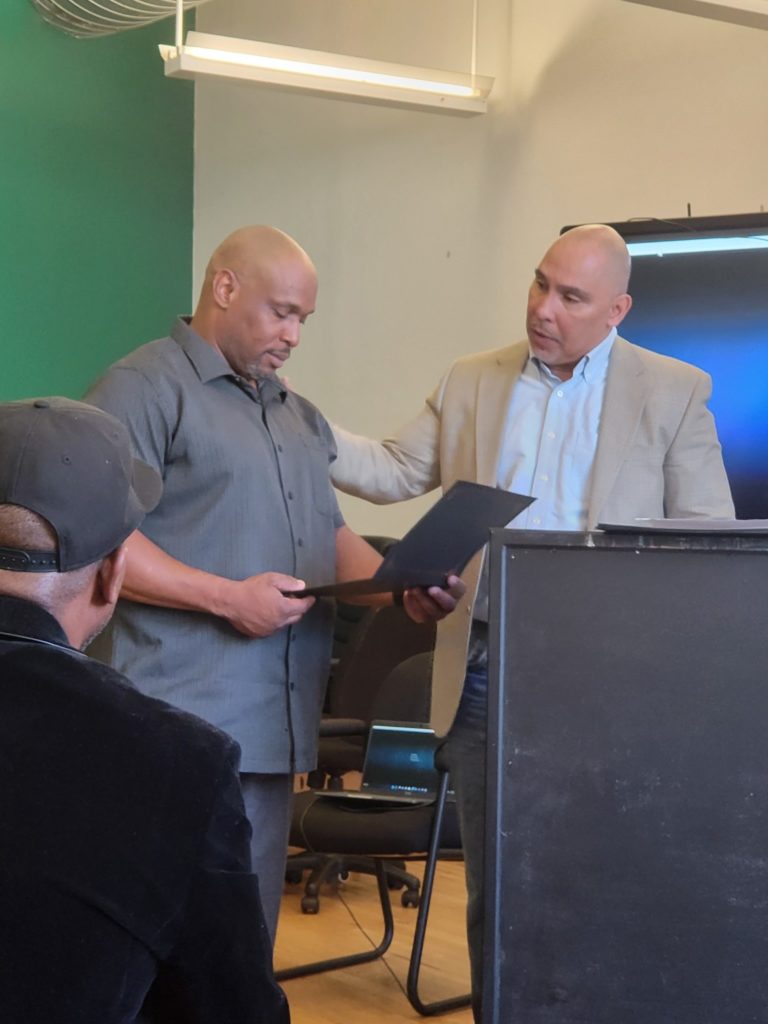
Romero returned to Newark in April after serving 36 years in prison for purposeful or knowing murder and felony murder. At age 15, he accompanied two boys to a robbery that he quickly fled from when he realized it was a home invasion of an elderly couple. When police arrested him the next day, he learned that the wife was raped before being killed by one of the boys who pled guilty and remains in prison for those and additional crimes committed during his incarceration. Romero, who now has a full-time job and an apartment, and is pursuing a master’s degree in criminal justice, credits the YAP re-entry program for preparing him for his transition, transporting him from prison, assisting him with getting his ID, and helping him make the emotional adjustment that comes with living for the first time as a free man.
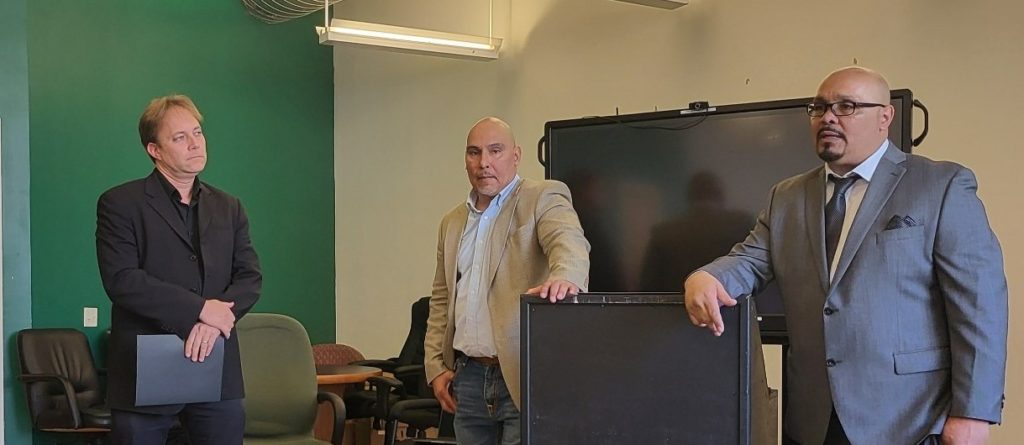
In addition to presenting certificates of completion to participants, the ceremony recognized local supporters. “Reverend Seth Kaper-Dale received a certificate of appreciation for his unwavering support,” said Carmelo Ortiz. “His organization – The Reform Church of Highland Park Affordable Housing Corporation – supports our program with housing opportunities for our participants. They rent apartments and sublease it to our participants at affordable rates.”
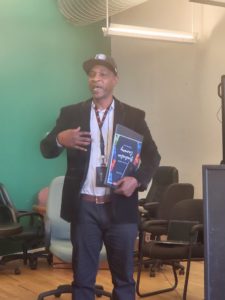
YAP staff Advocates meet program participants at the prison gates on the day of their release and transport them to emergency housing. But before that, while they are still incarcerated, they meet with their YAP Advocates to create strength-based individualized service plans. Later, YAP staff are at each program participant’s side to help with applying for ID cards, accessing food pantries, and connecting with job training, healthcare resources, employment services, educational programs and recreational activities to strengthen family bonds. Participants also take part in weekly support group sessions and benefit from mental health and substance use treatment and restorative justice and other services that provide ways to give back to their communities.
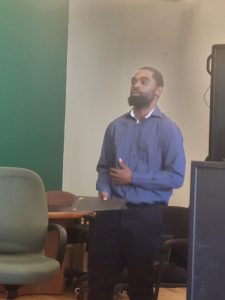
First-year funding for the program will enable YAP to serve up to 70 NJDOC referrals. However, news of the re-entry team’s work has been spreading among men and women who have been in the community for months, even years after maxing out of prison. Adhering to the 47-year-old nonprofit’s No Reject, No Eject policy, the YAP team has also been connecting these “walk-in” program participants with re-entry tools and resources and has invited those who have been successful to also take part in the graduation ceremony.

YAP is a 47-year-old national nonprofit in 33 states and the District of Columbia that partners with youth justice, child welfare, behavioral health, and other systems to provide community-based services as a more effective alternative to youth incarceration and congregate residential placements. In recent years, YAP has also been combining its evidence-based wraparound services model with violence intervention approaches to help communities curb violent crime.
Learn more about YAP at www.YAPInc.org and follow the organization on Twitter @YAPInc.

